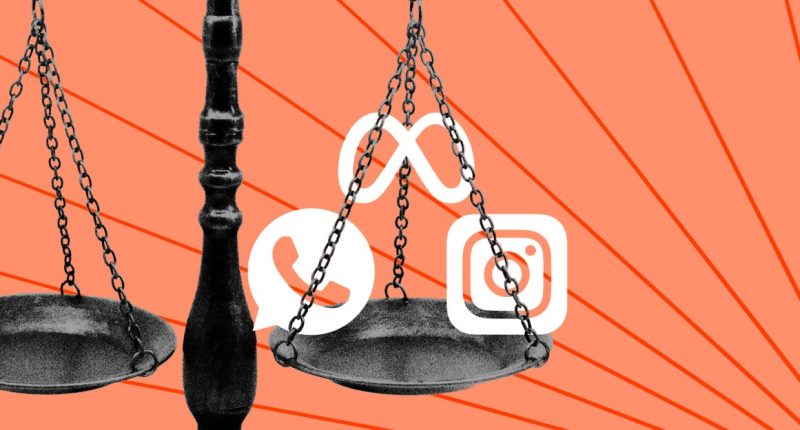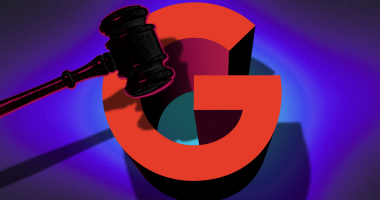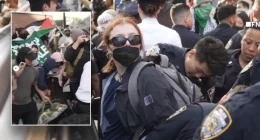Share this @internewscast.com
When Adam Mosseri assumed leadership of Meta-owned Instagram as CEO in 2018, the platform was facing what he described as “concerning” dips and stagnations in user engagement, partly due to stiff competition from a rising newcomer: TikTok. According to Instagram’s 2019 estimates, TikTok accounted for 23 percent of the decline in time users spent on Instagram in the US. This trend continued as ByteDance’s video app grew in popularity, especially amid the covid-19 pandemic. “While we can’t fully explain it, one thing is clear: we must adapt quickly,” Mosseri communicated to his team in March 2020. In recent testimony in a DC courtroom, he emphasized the urgency of Instagram’s recovery, stating that in the tech landscape, “you’re either growing or you’re slowly dying.”
During the Federal Trade Commission’s antitrust trial against Meta, Mosseri painted a picture of Instagram’s challenges, as the government accuses Meta of unlawfully monopolizing the personal social networking services market, which it argues includes Snapchat but excludes more entertainment-driven apps like YouTube and TikTok. His testimony underscored Instagram’s view of itself as a competitor to TikTok, despite the growing volume of entertainment content within its platform. Mosseri maintained that fostering connections with friends remains integral, a consideration that might still position Instagram as a relevant market contender if deemed monopolistic by the court.
Since the warning in March 2020, Instagram has made strides, partly due to enhanced AI recommendations for its Reels feature. Nonetheless, TikTok continues to be “the fiercest competition we’ve faced,” according to Mosseri. As Instagram has worked to better compete with TikTok through Reels, TikTok has evolved to mirror more of Instagram’s features. Initially, Mosseri perceived TikTok as offering “lean-back experiences” where users passively consumed content, but he now views it as “equally participatory” in nature. Mosseri noted that TikTok is also focusing on user interactions with friends, having introduced a feed to view friends’ videos. However, a TikTok executive previously testified that merely 1 percent of the platform’s video views happen through this friends’ tab.
Meta has emphasized throughout the trial that connecting with friends and family has become a smaller part of its business in the face of competitive pressures. But Mosseri’s testimony highlighted that helping users engage with their friends is still a core use case for Instagram today, and a way it sees itself being differentiated from rivals. Mosseri said in a 2024 video on his own Instagram account that the reason the app wouldn’t expand into long-form video was because it wasn’t as conducive to sharing with friends. “I still think friends are an important part of the experience,” he testified, though he also shared that as the app has grown overall, “the percentage of the app spent on friend content has gone down.”
“Instagram will always need to focus on friends,” Zuckerberg wrote in a 2018 email to Mosseri. Even as it grows to include more entertainment, he added, it “can never exclusively be for public figures or it will cease to be a social product.”
Mosseri also bridged the gap between earlier testimony from Zuckerberg, who testified about all the ways Facebook helped Instagram grow, and Instagram co-founder and former CEO Kevin Systrom, who testified that eventually, Zuckerberg pulled back resources from Instagram in favor of Facebook. Mosseri took over as CEO when Systrom left in 2018, and he gave a third perspective on the key question of whether Meta helped grow Instagram in ways it couldn’t have otherwise, or whether it bought it to squash a nascent competitor and later deprive it of resources.
Mosseri came over to Instagram from a role at Meta, so he was familiar with the cultures and gripes in both organizations. “As a new member of the Instagram team and a previous member of the Facebook team, I sat right in the middle of it,” he testified. Mosseri observed that in some ways, Instagram had “drifted culturally a bit too far apart in my opinion. We used to refer to Instagram as its own company, and it’s not.” He could see why Instagram’s founders were upset with some of the changes Facebook made to reduce promotion of Instagram from Facebook, but he saw both sides. “I disagreed with some of the changes personally, but I also thought they were being made more of than they needed to be.”
Ultimately, Mosseri testified, Facebook’s decision to buy Instagram could go down as “one of the best acquisitions of all time.” Instagram got to access Facebook’s resources and experience, and Facebook got to access the Instagram founders’ unique talent for coming up with innovative products — something Meta would need to stay ahead of competition in years to come. Both companies, he said, “benefited greatly.”








